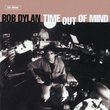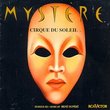| All Artists: Leonard Cohen Title: Death of a Ladies Man Members Wishing: 3 Total Copies: 0 Label: Sbme Special Mkts. Release Date: 2/1/2008 Genres: Folk, International Music, Pop, Rock Styles: Traditional Folk, North America, Singer-Songwriters, Folk Rock Number of Discs: 1 SwapaCD Credits: 1 UPC: 886972380728 |
Search - Leonard Cohen :: Death of a Ladies Man
 | Leonard Cohen Death of a Ladies Man Genres: Folk, International Music, Pop, Rock
|
Larger Image |
CD DetailsSimilar CDs
Similarly Requested CDs
|
CD ReviewsWAGNERIAN AND TACKY Carlo Matthews | Been Moving Around | 02/14/2009 (5 out of 5 stars) "There's something horribly sordid and alluring about this album -- my first ever Cohen and by far his most uncharacteristically bewitching. And It's not even the ever-dubious nietzschean Spector touch which seeks to apply The Wall Of Sound to whatever it hears. In fact, The Wall itself is so oddly built up that it ends up defeating the high and mighty aplomb it is known for. The huge arrangements, the choruses, the rising and swirling cadences with all their monumental aspirations are there, but they sound bizarrely dwarfed. The mystery, I think, is in the mix. The whole wagnerian army is meshed together as one beast, with little sound separation. But then it's pushed all the way to the back. So Cohen sings (and hollers) above an otherwise lush and nearly indistinguishable sea of tinny sounds that strives to lurch forward into the foreground but can't. The effect is unique. Spector's massive backup comes across as thin and distant, echoing all over the place, while Cohen seems wholly out of sorts, forced to sing in ways he never imagined. And he does so with desperate grace. Then there's the rickety chorus of females coming in and out, like they're popping their heads into the room intermittently, warbling their lines in sensuous white trash tones. Think of an ample and disreputable saloon with a full string & brass section playing on the ancient jukebox at the FAR end of the lounge. Then, before the music reaches you, some twisted cowboy sitting midway decides to add his singing, backed up occasionally by the skanky barroom girls. By the time this mix has finished bouncing through the room and hits YOU, the effect is both pathetic and glorious, threadbare and deeply moving, comical and metaphysical; it's both muzak and great music. It's downright tacky...but oh so beautiful. The cover says it all: Decadent white 'customer' of a cheap 'gentleman's club' in a dark corner of the world flanked by two anonymous, overly-perfumed, and terribly young 'ladies of the night'. The music in such a setting would be the music you hear on this album. (I should've just said that at the start!) How they did it, I dunno." Cohen & Spector rock out Pieter | Johannesburg | 08/19/2008 (5 out of 5 stars) "Death Of A Ladies' Man is an album of striking songs & tortured intensity so it will sound abrasive to some, especially those who prefer his spare style of the 1960s & later works like Recent Songs. As for the complaints about Phil Spector's production, the sound is not that far removed from tracks like Is This What You Wanted? and Lover Lover Lover on the 1974 album New Skin for the Old Ceremony that are characterized by raw vocals & heavy rock instrumentation. Even earlier, on 1971's Songs of Love and Hate the vocals, backing and theme of Diamonds in the Mine were anything but gentle. Why, even his 1967 debut contains the anguished track One Us Cannot Be Wrong which addresses the lover in a sequence of strange images before moving on to melodic whistling and ending with bitter shouted la la lahs. So there definitely was a precedent for Leonard the Rocker. His own dislike of the album - he completely ignored it in compiling The Essential Leonard Cohen - probably has more to do with unpleasant recollections of the recording process, which reportedly was quite stressful, than with the actual music. There is simply nothing wrong with the melodies or the lyrics whilst the arrangements and the vocals are a matter of taste. On tracks like the plodding drum-dominated Iodine, the highly strung Memories with its soaring vocal sections and raucous saxes & the thunderously pounding Don't Go Home his voice strains a bit against Spector's production, appropriately reflecting the sentiment of the songs. On the other hand the tuneful twirling True Love Leaves No Traces has exquisite imagery and soulful female vocals by Renee Blackley who contributes same on Iodine and Memories. The lyrics are sheer poetry, whether uplifting as in "True loves leaves no traces/If you and I are one/It's lost in our embraces/Like stars against the sun" or bitter and acerbic as in the twisted Paper-Thin Hotel: "It's written on the walls of this hotel/You go to heaven once you've been to hell/A heavy burden lifted from my soul/I heard that love was out of my control." The harshest element in Iodine is the lyrics, not the drums or the overall sound which is rendered highly atmospheric by the other-worldly backing vocals. In addition to True Love Leaves No Traces, other immediately appealing songs include the sensual and elegantly arranged I Left A Woman Waiting where Leonard's voice hovers between speaking and singing. The fiddle feast Fingerprints, buoyant with a lilting, propulsive beat must be one of the most catchy country songs of all time. The track The Captain on the 1984 album Various Positions was the closest Cohen came to country again. Bob Dylan and Alan Ginsberg are amongst the backing vocalists on Don't Go Home With Your Hardhat, a stampede of driving rhythms, shuddering percussion, powerful piano rolls and shouted vocals. The wrath & the fury are quite deceptive as the absurd lyrics will reveal if you can hear them. By adding bombast, Meat Loaf could turn this into a hit bigger than Bat out of Hell. It was a brilliant idea to put the aforementioned Fingerprints in this strategic position between the onslaught of Don't Go Home and the solemn, sprawling dirge that follows. Gravitas at its gravest, the weighty title track Death of a Ladies' Man has a majestic arrangement with waves of multi-layered doom-laden vocals in crescendos allowing at the ebbs a single female voice to momentarily caress Cohen's. The wall of instrumental sound acts likewise, so when waning a single instrument or hypnotic instrumental pattern comes fleetingly to the fore. With its overall drone-like ambience it is as oppressive in its atmospherics as Lou Reed's The Bells on the Street Hassle album. It also calls to mind Das Lied der Deutschen on the Velvet Underground chanteuse Nico's 1974 album The End. The sleeve notes credit "Spector & Cohen" as composers of all songs with no further information on lyrics or music. Spector was responsible for all vocal arrangements and for rhythm arrangements on six tracks. The two exceptions are I Left A Woman Waiting & Iodine where Nino Tempo takes the credit. Phil definitely set out to recreate his famous wall of sound with seventeen backing vocalists and an arsenal of instruments that includes guitars, drums, keyboards, synth, bass, percussion, fiddle, sax, flute, trombone, trumpet, organ and vibes. Proof of the quality of these compositions can be found on the excellent tribute album I'm Your Fan where True Love Leaves No Traces is given a breezy 1970s pop treatment by Dead Famous People & Don't Go Home With Your Hardhat is covered well enough by David McComb & Adam Peters. I loved Death of a Ladies' Man when it was released in 1978 and I appreciate it even more now. Like all of us, Cohen is allowed to shout sometimes. If he doesn't like the production, nothing stops him from re-recording some of these songs. " Kafka in Disneyland W. David English | Somerville, Massachusetts | 03/08/2010 (5 out of 5 stars) "Leonard Cohen was so unhappy with the way this album turned out that he paid to release himself from the obligation of promoting it. It's generally regarded as a hideously misbegotten experiment-that-went-astray. He doesn't do any of the songs on tour, perhaps not wishing to remind himself of what was apparently a traumatic experience.
But the fans who insist this is an unfairly-maligned masterpiece are not being contrary. I've loved this album from first hearing, and I've heard it hundreds of times. Perhaps Cohen's sensibility and the Wall of Sound are hopelessly mismatched in style, and yes, he was right to return to more simple production values in later albums. His lyrics ought not to be so buried. But the incongruity is weirdly compelling. The phrase "Kafka in Disneyland" popped into my brain as I first listened to it....a fanciful impression, maybe, but not wholly inappropriate. The eight songs, all excellent, were cowritten by Cohen and producer Phil Spector. The liner notes do not indicate a definite delineation between their input; Did Spector help out with the lyrics? Are the melodies partially Cohen-composed? This has never been clear to me, and I'd really be curious to know for sure. They were written at Spector's L.A. mansion during a period when the Canadian poet, whom one would suppose would be used to the cold, was forced to wear an overcoat indoors, due to Spector's megafrigid air conditioning. The songs depict the dark side of the relationship between men and women, and if you must have mooning and spooning in your romantic ballads, look elsewhere. In "Paper-Thin Hotel", the singer listens to his lover make love to another man in the adjacent hotel room, and the knowledge that his suspicions of her infidelity are confirmed fills his heart with relief. Who but Cohen could write this? The song "Iodine" deals, brutally frankly, with the subject of impotence. The Spectorian production works especially effectively here, deploying nyahh-nyahh-horn riffs. "Fingerprints" is a marvelous country and western rave-up; why it isn't a standard by now I can't imagine. "Don't Go Home With Your (expletive deleted)" was the closing song performed by the entire company during an Australian Cohen-tribute concert which was filmed for the "I'm Your Man" Cohen documentary of a few years ago. It was not included in the movie, the CD, or the DVD, I'm sorry to say. "Memories" is splendid doo-wop-flavored song, in which the singer meets a beautiful blonde at a dance, tries immediately to sweet-talk her into bed, and is sweetly rebuffed. Sometimes the artist is not the most astute judge of his own work. The Beatles could never listen to the White Album without remembering the increasing level of inter-band acrimony that accompanied its creation. The average listener has no such impediment. And Leonard Cohen's friction with Phil Spector, who seized control of the album, will perhaps always color his opinion of the end product. And by now, with Spector in prison for shooting dead a woman in the same mansion where he and Cohen wrote the songs, this memory is not likely to warm up over time. Spector once put his arm around Cohen's shoulder, and aimed a pistol at his cheek, and purred "I love you, Leonard." Cohen gently pushed the gun aside and said "I hope you love me, Phil!". Considering ensuing events, no one in the world could blame Cohen for preferring to suppress any memory of their partnership. I wish he'd perform at least a couple of these songs on stage, but I guess that is unlikely to happen. But the album remains in print, and its eccentric glories have stood the test of time. Is this an ideal entry-level Leonard Cohen album? Probably not, if only because it is such a departure from what he usually does. But do not be scared off by its reputation. Listen to cuts online, that might be sufficient to hook you." |

 Track Listings (8) - Disc #1
Track Listings (8) - Disc #1








